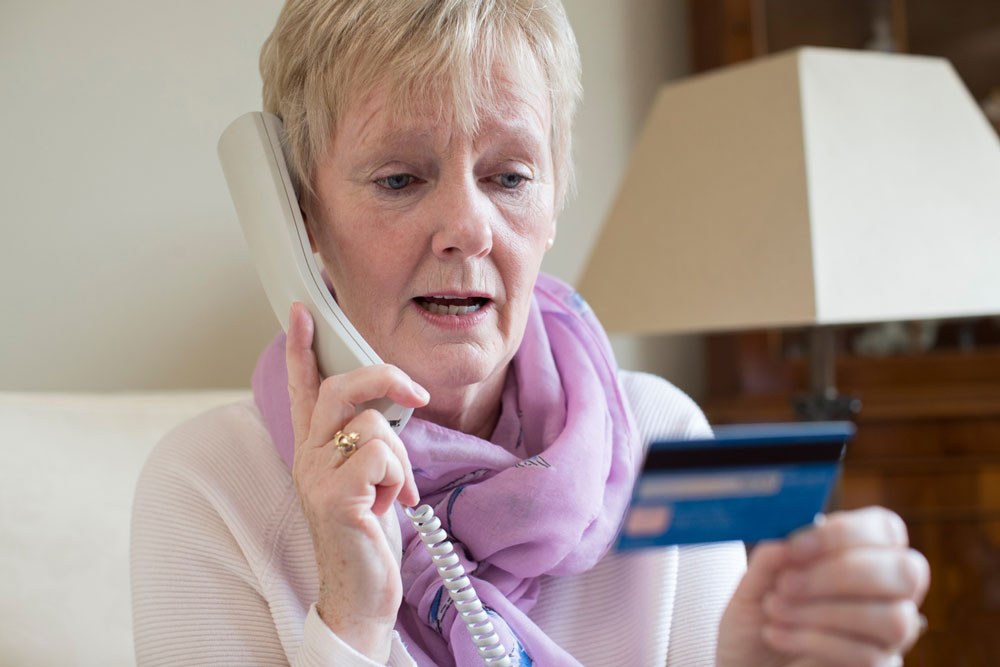Protecting Seniors from Getting Tricked into Scams
Category:

As our loved ones age, they’re often viewed as easy targets by online scammers. This is mostly due in part to their lack of being tech savvy and unaware that they are being preyed upon. The elderly are often very trusting, and it might not occur to them to question a scammer who approaches them with an offer that’s “too-good-to-be-true,” but is really just a con in disguise. It’s always smart thinking to educate your loved ones about unbelievable offers before it’s too late.
Unfortunately, billions are lost every year by seniors to scammers, and it’s often hard to know how to protect your loved ones.
Oftentimes, scammers target the elderly above any other age group because they know they are more likely to fall victim. Victims may be hit multiple times after being identified as easy marks.
Con artists capitalize on the fact that many elders live separately from their children, meaning you aren’t there to interfere with a call, email, and mailed letter scams. Scolding loved ones or demanding power over their finances may feel like the only option, but this often comes with emotional baggage and ill will. Finding a home caregiver who visits regularly and can help a senior loved one from getting distracted by potential scammers is another option worth considering.
Lectures or taking over finances plays right into the scammer’s hands by destroying the target’s independence. Victims can feel stupid and unable to take care of themselves independently.

So how do you keep your loved ones safe from scams while also sparing their feelings? Here are four approaches that might help.
Talk about why:
Don’t just advise your loved ones to hang up the phone on scammers, invite them to look deeper. Why would a government agency call you for your information? They already have it on file. Why would you have to pay a fee to collect lottery winnings? Why would you be able to win a contest you never entered?
Don’t Blame:
Turn the tables and remind them what they taught you decades ago: Don’t trust strangers -especially those looking for your personal information or money.
Reverse Psychology:
If it becomes clear that an aging parent is caught up in too-good-to-be-true scams, ask how you can invest your money, too. Psychologically, this may help your loved ones see the situation in a different light and prompt a warning sign. After all, your loved ones don’t want you to lose money too. That’s a perfect opportunity to ask, “then why invest your own money?” This conversation can help loved ones realize and come to terms with scams themselves.
Give them a cause:
People in the same situation need your loved ones’ help identifying and reporting scams. Authorities are always looking for scammers, and giving details of what happened is an important part of stopping the cycle.
Keep alert for signs of scamming, and if you live far away, hiring a home caregiver to make sure an older parent has someone who visits regularly is often a good idea. Are there many scams coming to the house by mail, email, or phone? This could indicate your parent’s placement on a “sucker list” that can be bought and sold among scammers for future fraud on past victims.
See if your loved ones will allow you to set up access to their bank accounts or credit cards. This will allow you a window into your parent’s finances. Look for unusual charges.
When it comes to falling for elder financial abuse, women are twice as likely as men, especially when living alone. A Type A personality is also a red flag for scams, as quick decision makers are often reeled in by the “act now!” scams like false lotteries. Another risk factor is the three years after a major life event, such as moving housing, a health scare, or losing a loved one.
Always remind your loved ones to never give out their personal information such as account numbers, Social Security numbers, passwords, or other identifying information. If you need a caregiver who regularly visits your elderly family member at home to check in and help with items around the house, reach out to Griswold Home Care Worcester at (508) 917-6649. We understand how seniors are unfairly targeted by scammers and know how important it is to make sure their information stays safe. We are always happy to share our knowledge on this very important topic.
Subscribe
Date: January 10, 2023
Category:

